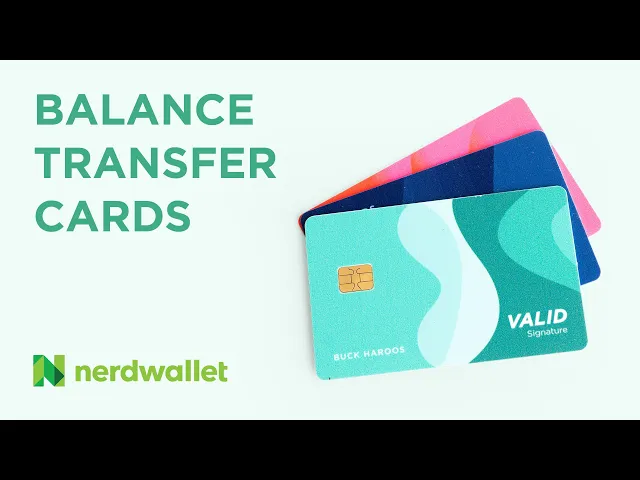The speed at which balance transfers go through can vary depending on several factors. Generally, it takes around 7 to 10 business days for a balance transfer to be completed. However, some credit card companies may offer expedited processing, which can reduce the time to as little as 1 to 3 business days. It is important to note that the speed of the transfer also depends on the cooperation of the banks involved and any potential delays in the verification process. To ensure a smooth and timely transfer, it is advisable to carefully follow the instructions provided by the credit card company and promptly provide any required documentation.
how fast do balance transfers go through
A balance transfer is the act of transferring a balance from one credit card to another. Generally, this process is completed within a span of five to seven days. However, it is important to note that certain credit card issuers may require up to 14 or even 21 days to finalize a balance transfer.
What is the catch to a balance transfer?

A balance transfer is not a solution to eliminate debt completely. It is important to note that balance transfers often involve fees and you may still be required to pay interest on the transferred balance.
Certain credit card issuers may entice you with an introductory 0% APR on balance transfers for a specific duration. However, there is a condition attached. If you still have an outstanding balance when the introductory period ends, you will be liable to pay interest on the remaining amount. To avoid this, it is advisable to create a repayment plan to clear your credit card balance within the interest-free introductory period.
Is it wise to transfer balances?

If you are able to pay off a balance within three months or cannot qualify for a favorable 0 APR offer, it may be best to prioritize paying off your debt quickly. In this case, a personal loan could be a suitable option. By prequalifying for a personal loan, you can determine the amount you can borrow and the interest rate before accepting an offer.
However, if you require several months to pay off high-interest debt and have a good credit score, a balance transfer is generally the most beneficial choice. By obtaining a credit card with a 0 introductory APR on balance transfers, you can save a significant amount on interest and expedite the repayment of your balances.
How do I know if my balance transfer went through?

Each credit card issuer has its own process for handling balance transfers, and transferring balances to new card accounts may take longer than transferring to existing cards. Timing is important when it comes to balance transfers, especially in the following situations:
1. If you have a balance transfer credit card with a 0% introductory APR offer that requires you to transfer balances within a specific timeframe to take advantage of the offer.
2. If the card offers an introductory period during which no balance transfer fees are charged.
3. If you have an upcoming payment due on the card from which you are transferring the balance.
Failure to follow up or check the status of your transfer could result in late fees and interest charges on the card from which you transferred the balance. Additionally, depending on the card issuer and the timing of your transfer request, you may need to make more than one monthly payment on the original card before the transfer is finalized.
To ensure a smooth transfer, we recommend checking your account with the original card issuer every couple of days to confirm that the funds have been received. You should see the transfer reflected on your account, similar to a regular credit card payment.
Can you speed up a balance transfer?
To expedite the balance transfer process, follow these tips:
1. Apply for the balance transfer online instead of using regular mail. This will save a few days in processing time and allow you to easily track the progress of your application online.
2. Determine the estimated time it takes for balance transfers to be completed. Check the credit card disclosure for this information or contact the credit card company directly. Keep in mind that the term “at least” means it could take longer than the stated time. Plan for at least 21 days to complete the process, but a month would be even better.
3. Request all balance transfers when submitting your application. To take full advantage of the introductory rate, complete all transfers as soon as possible. Most applications allow you to request transfers during the initial application process. If you prefer to wait for approval and credit limit information, call and make the transfers over the phone as soon as you have the necessary details.
4. Continue making payments on your existing credit cards until the transfers are completed. Do not assume that you can skip payments during the transfer process. Since it can take three to four weeks to complete, failing to make payments could result in late fees and negative marks on your credit report.
Why is my credit card balance higher than what I spent?

xxxxx vs Current Balance
If you don’t check your credit card account regularly, you may not notice the difference between your statement balance and your current balance. When you only view your account information on your monthly statements, the balances will be the same.
However, your current balance can be higher than the statement balance if you have spent more than you have repaid. This typically occurs during the grace period you have to pay your bill. Since you are continuously using your card, your current balance will increase. Meanwhile, your statement balance will remain the same, as it reflects what you owe for the previous statement cycle.
Let’s consider an example. Suppose you have spent $500 on your credit card within a statement cycle. When your bill arrives, both your statement balance and current balance are $500. The next day, you make a $30 purchase on your card without paying your bill. At this point, your statement balance will still be $500. However, if you check your current balance, it will show $530.
Ideally, you should pay the statement balance in full before the due date. It is important to be cautious about only paying the minimum amount stated on your credit card statement. While this may help you avoid a late fee, it allows both your statement balance and current balance to accrue interest. Consequently, you end up owing more money than necessary. If you are late on a payment, you may face significant penalties, including a late fee and possibly a penalty APR.
How much is too much in a current account?

Money in your checking account may be tempting to spend, but it’s not growing. It’s important to assess how much you should keep in your checking account to maximize your financial growth. Our experts provide unbiased reviews and answer readers’ banking questions. While we may receive a commission from our partners, our opinions are our own. Offers listed on this page are subject to terms and conditions.
Having too much money in your checking account means missing out on potential interest and growth. It is recommended to keep about two months’ worth of expenses in your checking account. For long-term financial growth, consider high-yield savings accounts, CDs, and investment accounts. Check out Insider’s recommendations for the best high-yield savings accounts.
Although it’s satisfying to see a large balance in your checking account, it’s important to determine how much is too much. There are two main reasons why keeping too much in your checking account is not ideal. Firstly, easy access to the money may tempt you to spend it. Secondly, checking accounts typically do not earn much, if any, interest, resulting in limited growth potential. By keeping excessive funds in your checking account, you may be leaving money on the table.
Marci Bair, a financial planner from Bair Financial Planning in San Diego, California, advises individuals with a steady income to keep no more than two months’ worth of expenses in their checking account. If you suspect that you have too much money in your checking account, consider the following signs as indicators that it’s time to move your money elsewhere.
How long does a transfer take to hit your bank account?

Wire transfers are widely used for both domestic and international purposes. They are particularly favored for international transfers due to their convenience in converting to foreign currencies when necessary.
Wire transfers are especially beneficial in the following situations:
1. Urgent transfers: Domestic transfers are usually processed on the same day, while international transfers typically take a few days, depending on the country.
2. Large sums of money: Money transfer providers generally have high limits for wire transfers. As a result, wire transfers are commonly utilized for paying invoices, sending funds within families, and conducting real estate transactions.
Conclusion
Conclusion:
In conclusion, balance transfers can be a useful tool for individuals looking to consolidate their credit card debt and save on interest payments. However, it is important to carefully consider the potential drawbacks and fees associated with these transfers. While they can provide temporary relief from high interest rates, it is crucial to have a solid plan in place to pay off the transferred balance before the promotional period ends.
One of the main catches to a balance transfer is the balance transfer fee, which is typically a percentage of the amount being transferred. This fee can eat into the potential savings, so it is important to calculate whether the savings on interest outweigh the cost of the fee. Additionally, if the transferred balance is not paid off within the promotional period, the interest rate may revert to a higher rate, negating the initial benefits of the transfer.
To ensure that a balance transfer has gone through successfully, it is recommended to monitor the credit card account and check for the transferred balance. This can be done by reviewing the account statement or contacting the credit card issuer directly. It is important to keep track of the transfer to avoid any potential issues or misunderstandings.
If a credit card balance is higher than what was spent, it could be due to various factors such as interest charges, fees, or cash advances. It is important to carefully review the credit card statement to understand the breakdown of charges and identify any discrepancies. If there are any concerns or discrepancies, it is advisable to contact the credit card issuer for clarification.
The time it takes for a balance transfer to hit a bank account can vary depending on the credit card issuer and the receiving bank. Generally, it can take anywhere from a few days to a couple of weeks for the transfer to be completed. It is recommended to monitor the bank account and credit card statement to ensure that the transfer has been processed successfully.
When it comes to determining how much is too much in a current account, it is important to consider individual financial circumstances and goals. While it is generally advisable to maintain a buffer in the account for emergencies and unexpected expenses, having excessive funds in a current account may not be the most efficient use of money. It is recommended to assess personal financial needs and consider alternative options such as investments or savings accounts to maximize the potential growth of funds.
Sources Link
https://www.nerdwallet.com/article/credit-cards/balance-transfer
https://smartasset.com/credit-cards/credit-card-statement-balance-vs-current-balance
https://www.wellsfargo.com/financial-education/basic-finances/manage-money/payments/ins-outs-transfers/
https://www.businessinsider.com/personal-finance/too-much-money-in-checking-account-signs
You are watching: how fast do balance transfers go through
